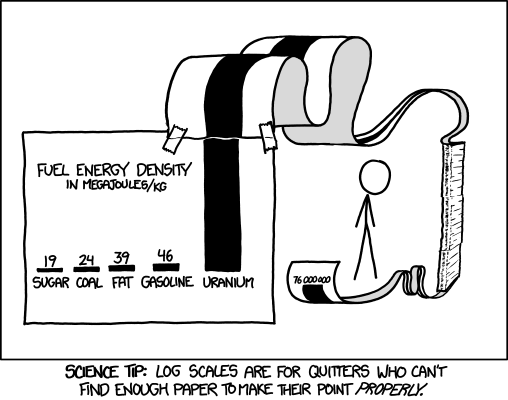Fundamentally, I agree Brawndo (tho I'd probably phrase it more delicately). Modern nuclear power plants are orders of magnitude safer than prior models, while still providing literally unparalleled quantities of, well, power.
Fundamentally, our power consumption as a society is only going to go up in the foreseeable future, at least until every country on earth hits the industrial population plateau (and that's assuming that future technologies don't consume more power than current ones, which doesn't seem to be a particularly safe bet). Wind and solar both have some critical flaws in that they're dependent on local conditions and, frankly, very low yield. The latter is steadily improving, but unless you're willing to literally coat Nevada with solar farms, you're never going to be able to power a country like the US off of those two. Nuclear meets our needs.
Nuclear is also considerably safer than most people give it credit for. A properly functioning nuclear plant releases less radiation into the atmosphere than a coal burning one, for instance. And other than Chernobyl (which was a shitshow even when it was built), nuclear's track record is significantly better than fossil fuels. Yes, nuclear disasters are scarier, but arguably coal and oil have done significantly more damage, in terms of both health risks and the obvious environmental damage. This presents an interesting issue where the fear of nuclear power is arguably doing more damage than the actual negative impact of it.
In the case of Three Mile Island, for instance, more people got cancer from the stress of being near the "disaster" than actually got cancer from, you know, radiation. And Fukushima, while bad, is closer in scale to a Superfund site than Chernobyl. It's a first-gen plant that got hit with an earthquake a full 2 points higher on the Richter scale than it was designed to withstand and goddamn
tsunami, and there's no evidence of permanent contamination. By all metrics other than public opinion, Fukushima was a triumph of safety precautions. No evidence of long-term increases in the cancer rates of residents. Radiation basically back to normal background levels everywhere but a small area around the reactors themselves.
Forbes contributor piece on the subject (I know, I know, but it's very well cited). And that's in a plant that is, by modern standards, downright ancient! In current models, your operators don't have to work at making it not melt down, they need to work at making it stay on. If coolant stops flowing into the reactor for any reason, the reaction is halted entirely automatically. They're built to higher standards than Fukushima in other areas too.
In conclusion, Nuclear is a necessary part of our energy platform moving forwards, and significantly safer than people give it credit for.


